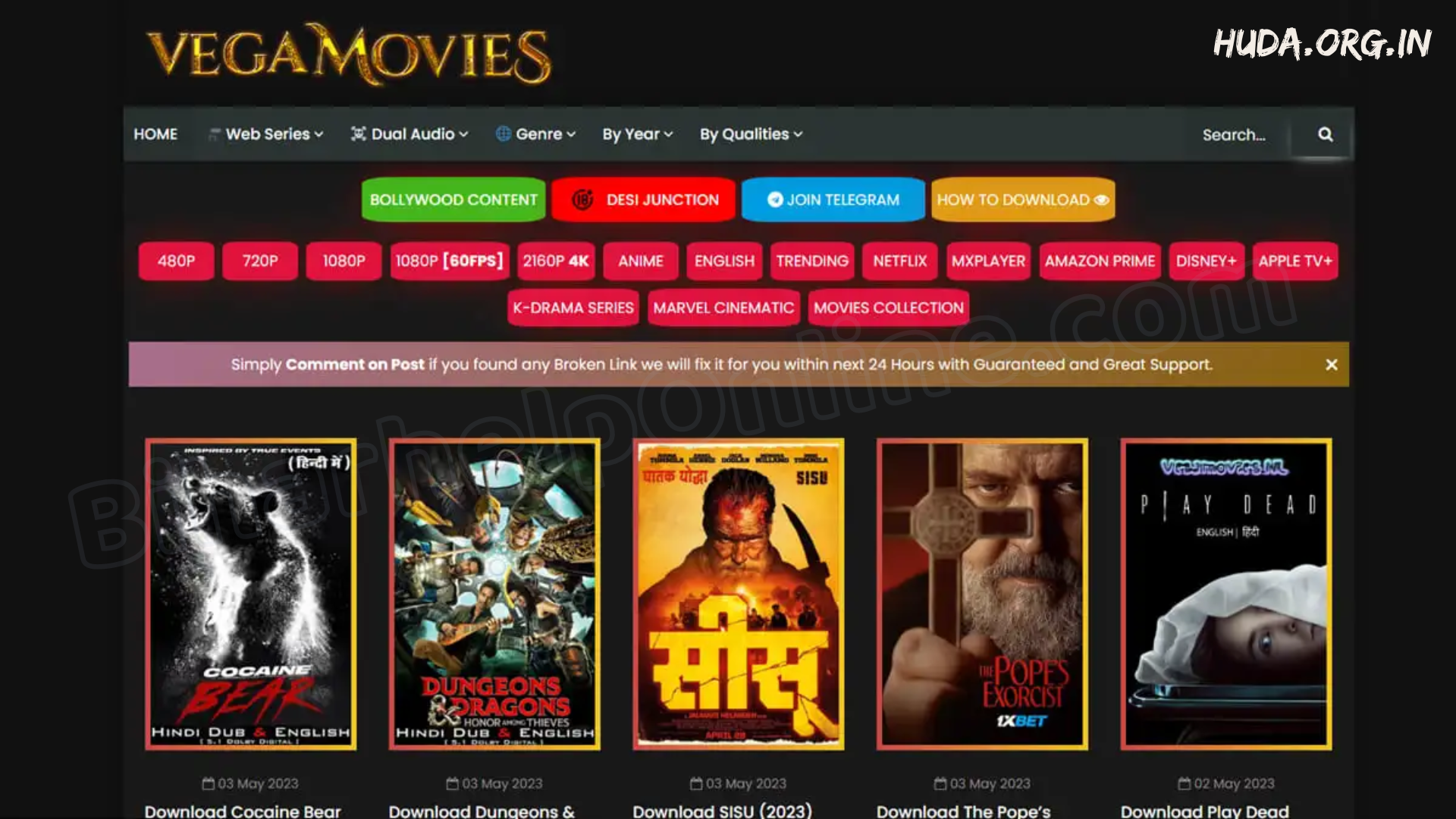Does the digital frontier truly offer a level playing field, or is it a battleground where legality and accessibility constantly clash? The relentless pursuit of content piracy, particularly within the realm of streaming, continues to pose a significant challenge to the entertainment industry, with illicit platforms evolving at an alarming pace to circumvent legal safeguards.
The struggle to navigate the complexities of online content consumption often leads users down winding paths, confronting them with deceptive search results and potentially damaging websites. The rise and fall of platforms like Vegamovies, once a prominent figure in the Indian digital landscape, serve as a stark reminder of the ongoing conflict between copyright holders and those who seek to exploit their intellectual property. The very existence of these platforms, however, underscores a fundamental truth: the demand for accessible content is voracious, and the industry's response must be equally dynamic to meet it.
The issue of illegal streaming platforms is not merely a technical one; it is a multifaceted problem with economic, legal, and ethical implications. While platforms like Vegamovies, which was branded as one of the most notorious pirate sites earlier this year by the U.S. Trade Representative, were built on the premise of providing free access to copyrighted material, their activities have a tangible impact on the livelihoods of countless individuals involved in the production, distribution, and exhibition of films and television series. The financial losses incurred by the industry due to piracy are substantial, and they undermine the ability of creators to invest in new projects and continue delivering high-quality entertainment to audiences worldwide.
The legal battles surrounding these platforms are often complex and protracted. Copyright holders must constantly monitor the digital landscape, identify infringing websites, and pursue legal action against those responsible. This process is further complicated by the global nature of the internet, as illegal platforms often operate from jurisdictions with lax enforcement of copyright laws, making it difficult to bring them to justice. The legal frameworks governing online content are constantly evolving, and governments around the world are struggling to keep pace with the rapid advancements in technology that enable piracy.
Beyond the economic and legal dimensions, the ethical considerations associated with content piracy are equally important. When individuals access copyrighted material without paying for it, they are, in effect, stealing. This behavior undermines the value of creative work and sends a message that it is acceptable to disregard the rights of creators. While some may argue that piracy is a victimless crime, the reality is that it has a negative impact on everyone involved in the entertainment industry.
The popularity of platforms like Vegamovies, especially in India, highlights the importance of understanding the motivations of those who turn to piracy. Factors such as the cost of legal streaming services, the availability of content in specific regions, and the convenience of accessing pirated material all play a role. Addressing these underlying issues is crucial to effectively combating piracy and encouraging consumers to support legitimate content providers.
One of the primary drivers for the use of pirated content is the cost factor. Legal streaming services, while offering vast libraries of content, often require subscriptions that can be expensive, particularly when multiple services are needed to access a diverse range of movies and television series. For many, especially in developing countries, the financial burden of paying for legal content is simply too high.
Another significant factor is the availability of content. Despite the global reach of the internet, not all movies and television series are available in every region. Distribution rights, licensing agreements, and other restrictions can limit the availability of certain content in specific countries. This can lead to frustration for viewers, who may then turn to pirated sources to access the content they desire.
The convenience factor is also a major consideration. Pirated content is often readily available online, with little effort required to find and download it. Platforms like Vegamovies, despite their illegal nature, often offered a user-friendly experience, making it easy for viewers to access the latest movies and television series. The ease of access, combined with the lack of legal consequences for downloading pirated content, makes piracy an attractive option for many.
The emergence of legal streaming services, such as Netflix, Amazon Prime Video India, and Hotstar, has provided consumers with a legitimate alternative to piracy. These services offer vast libraries of content, easy-to-use interfaces, and affordable subscription plans. However, the success of these services depends on their ability to compete with piracy in terms of both price and content availability.
To successfully combat piracy, the entertainment industry must adopt a multi-pronged approach. This includes strengthening legal frameworks, pursuing legal action against pirate sites, educating consumers about the harms of piracy, and offering more affordable and convenient alternatives to illegal content sources.
The digital landscape is a constantly evolving ecosystem, and the fight against content piracy is an ongoing struggle. While platforms like Vegamovies may be targeted and shut down, new websites will inevitably emerge to fill the void. The ultimate solution lies in a combination of robust legal measures, innovative business models, and a sustained effort to educate consumers about the importance of respecting intellectual property rights.
The role of technology in both enabling and combating piracy is crucial. Advanced technologies such as content recognition software and anti-piracy tools are used to identify and remove pirated content from the internet. However, pirates are constantly finding new ways to circumvent these technologies, making the fight against piracy a never-ending arms race.
For consumers, the proliferation of streaming services like Justwatch has made it easier to find where to watch their favorite movies and television series legally. Justwatch allows users to choose their preferred streaming services and then see what is available on platforms like Netflix, Amazon Prime Video India, and Hotstar. This simplifies the process of discovering content and helps consumers avoid the risks associated with downloading pirated material.
While platforms like Moviefone offer cast details, reviews, trailers, and streaming options, it is important to remember that their primary function is to provide information. They are not a substitute for supporting legitimate content providers by paying for access to their movies and television series.
The story of a rancher seeking work as a bouncer at a bar, as mentioned, reflects the underlying themes of navigating a volatile past and seeking a fresh start. It serves as a metaphor for the challenges faced by the entertainment industry in its fight against piracy. Just as the rancher encounters challenges and finds a kindred spirit in a female officer, the industry needs to find new strategies and partnerships to overcome the threat of illegal streaming.
In the complex world of digital content consumption, the choices we make have consequences. Supporting legal streaming services and refraining from accessing pirated content is an investment in the future of entertainment. It ensures that creators are compensated for their work and can continue to produce the movies and television series that we all enjoy.
The U.S. Trade Representative's labeling of Vegamovies as a notorious pirate site underscores the international efforts to combat online piracy. These efforts require collaboration between governments, law enforcement agencies, and the entertainment industry. Effective enforcement of copyright laws, along with the development of innovative technological solutions, is essential to reduce the prevalence of piracy.
The quest for readily available and cost-effective entertainment is a timeless one, but the means by which we seek it should always be legal and ethical. The rise of streaming services has transformed the way we consume content, yet piracy persists, requiring a continuous effort to educate, innovate, and enforce the boundaries of copyright in the digital age.


